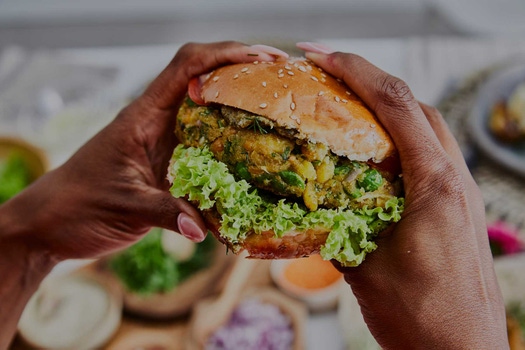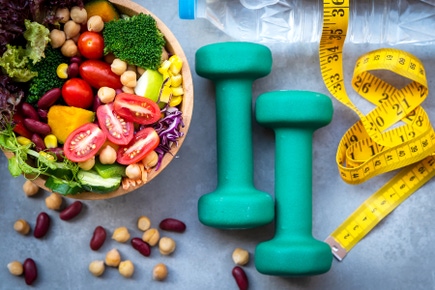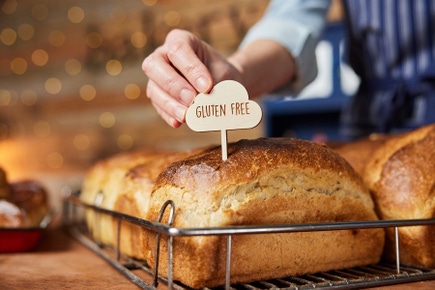
Can replacing just one serve of meat a week really make a difference?
While having a ‘Meat Free Monday’ has become common vernacular, can dropping just one meat meal a week really make a difference to your health?
According to recent research, even making small changes to your diet can have a positive impact on your health and especially if that means you are increasing your protein intake from plants.
A study of more than 200,000 participants found that replacing just one serve of red meat per day with a serve of legumes or nuts helped to lower the risk of Type 2 diabetes by 30%, and 41% when replacing processed meat.
The good news is that this study is not unique. Another showed that women who consumed as little as 3% more of their energy from plant proteins each day had a 38% higher chance of remaining healthy as they aged, which meant less chronic disease as well as better physical and cognitive functions. Consuming just 3 percent less animal protein and replacing that with plant protein was linked to a 19 percent lower risk of death from any cause. And the list goes on, with multiple studies highlighting that cutting back on meat improves our overall health and lowers the risk of many chronic diseases.
So, how do you start on your meat less journey to better health?
The easiest way to start is by taking small steps and embracing plant proteins. However, if you’ve got a meat-loving family, even small steps may feel overwhelming. The average Kiwi eats almost 75.2kg of meat per year, meaning we have one of the highest meat consumption rates in the world.
While this number is decreasing, if a typical dinner for you is a traditional roast lamb, here’s our 5 favourite tips to try make your meals more plant-powered and drop those meat-packed meals.
- Try Meat Free Mondays: You don’t have to go meat free all at once. Instead, try Meat Free Monday. Once you’ve got the hang of it, you may like to build more meat free days into your meal planning for the rest of the week. Why Mondays? Research shows that people often experience increased motivation to start new goals at the beginning on the week, therefore Mondays could be a good time to try something new. So, there’s more to Meat Free Mondays than just a clever name.
- Go for legumes: The New Zealand Ministry of Health recommend a diet that is largely plant-based and suggest that legumes, tofu, nuts and seeds are great meat alternatives. A good place to start incorporating more of these into your diet is with classic family favourites like spaghetti bolognaise, burger patties or curries. You can replace some, or all of the meat with beans, legumes or tofu. You will find you get a similar textural experience and all those plant foods can help you feel full, keeping everyone at the table happy. And, you’ll likely save money too.
- Switch to plant-based meat alternatives: Swap like for (almost) like with meat alternatives. These are plant-based foods designed to help people trying to cut back on the amount of meat they eat, without losing the taste and experience they enjoy. They also tend to be lower in kilojoules and saturated fat compared to their animal-based counterparts, plus being made from plants, many provide a source of fibre. When shopping for meat alternatives, try zinc and vitamin B12.
- Eat more whole foods: Pack your plate with wholefoods, like wholegrain breads and pastas, baked potatoes, and vegetables plus include delicious wholefood snacks like fruit, seeds and nuts. The fibre content in these foods will help fill you up and stop you missing the meat.
- Have your meat on the side: If you are used to making meat the main event, try reducing the amount of meat and increasing the serve of veggies and wholegrains instead. Remember that a serve of meat shouldn’t be any bigger than the size of your palm. Start with that and then slowly decrease the size. You may like to slice it thinly and add it to a larger salad, for example.
If I stop eating meat, how will I get enough protein?
If you are reducing your meat intake you may be worried you won’t be able to get enough protein in your diet. Protein is important in building muscles, for bone health, recovery from injury or surgery, keeping your appetite in check and for healthy growth.
The National Health and Medical Research Council recommends that men up to age 70 eat at least 64g of protein per day to stay healthy, and women up to age 70 eat at least 46g (unless pregnant or breastfeeding when requirements are higher). The amount increases slightly over the age of 70. Most Kiwis are consuming this, and more, with men consuming an average of 102g of protein per day and women consuming and average of 71g per day.
This means it is easy enough to source your recommended daily protein needs from plant-based foods. And, we are increasingly understanding that plant protein boasts added benefits, like improvements in heart health and cholesterol and research tells us legumes in particular may help you live longer.
If you’re unsure of the right amount of protein for your needs, check with your dietitian.
So, what are the top sources of plant protein?
There are plenty of great plant proteins to choose from and in a lot of cases, they are much cheaper than an equivalent amount of meat too.
Try some of these protein sources when Meat Free Monday next rolls around. And if you are looking for some tasty ideas on how to serve these up, download our new cookbook Easy Eats for 20 plus budget-friendly, plant-powered and dietitian approved recipes the whole family will love.
High-protein foods
Plant protein source | Quantity | Protein content |
|---|---|---|
| Legumes | ||
Tofu | 170g | 19.7g |
Tempeh | 100g | 18.5g |
Soy beans/ Edamame beans | 1 cup cooked (150g) | 17.4g |
| Red kidney beans | 1 cup cooked (150g) | 11.8g |
| Lentils | 1 cup cooked (150g) | 11.4g |
| Chickpeas | 1 cup cooked (150g) | 10.8g |
Soy milk | 1 cup (250 mL) | 8g |
| Nuts and seeds | ||
| Pumpkin seeds, raw | ¼ cup (30g) | 9.3g |
| Almonds, raw | ¼ cup (30g) | 6g |
| Peanut butter, no added salt or sugar | 1 tbsp (20g) | 5.9g |
| Sunflower seeds, raw | ¼ cup (30g) | 5.8g |
| Cashew nuts, raw | ¼ cup (30g) | 5.3g |
| Brazil nuts, raw | ¼ cup (30g) | 3.6g |
| Wholegrains | ||
| Wholegrain wheat | 2 wholegrain wheat breakfast biscuits (30g) | 3.8g |
| Quinoa | ½ cup cooked (90g) | 3.3g |
| Bulgur wheat | ½ cup cooked (120g) | 2.9g |
| Brown rice, long grain | ½ cup cooked (90g) | 2.4g |
| Buckwheat | ½ cup cooked (90g) | 2.4g |

The latest nutrition advice, plus health and wellness tips delivered to your inbox monthly

